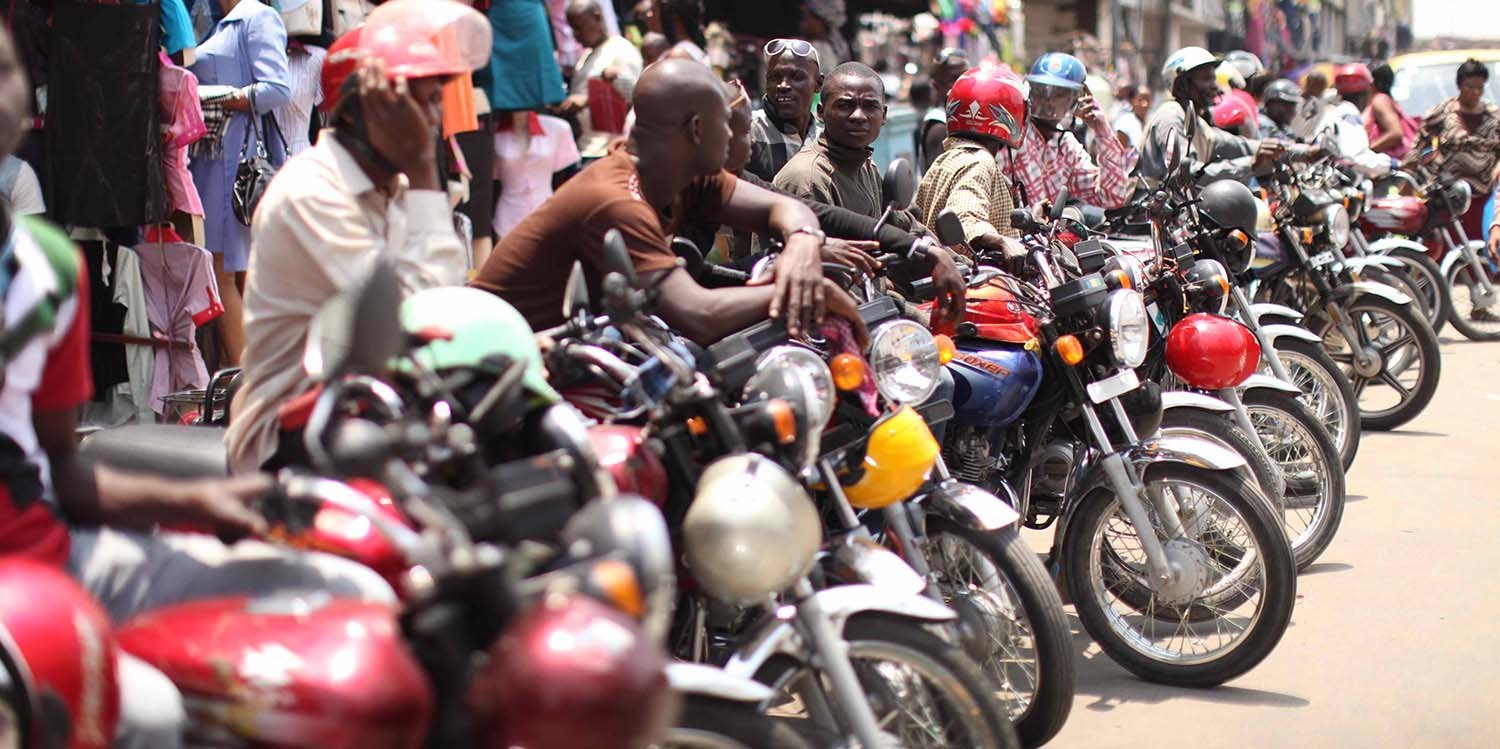The commercial motorcycle popularly called okada was recently banned by some state governors. This has depressed the livelihood of some truthful and dependable Nigerians across the country, who could not secure white collar jobs in the formal sector of the economy.
The name okada was borrowed from the defunct Nigerian local airline. The commercial motorcycle is strictly hired to convey people to their different destinations, especially cities of Nigeria that have terrible gridlock. Commercial motorcycles are mainly used in West African countries such as Togo, Benin Republic, Burkina Faso, Liberia and Sierra Leone.
They appeared in Nigeria in the late 1980s, during an economic downturn. Jobless youths began to use motorcycles to earn money by transporting passengers on narrow or poorly-maintained roads to far away cities and villages. This type of transport soon became popular as its acceptance has increased steadily. Okada are now one of the basic means of transport in Nigeria. It has become a means of transport regularly used by the young and the old, men and women. Unfortunately, the rise in okada transport has been accompanied by increased occurrences of recklessness and accidents on Nigerian roads. As a result, okada has come under serious criticisms. This has also resulted to legislate against it in form of outright ban or restriction of their operations in some Nigerian cities.
To some extent, okada has assisted some jobless graduates, semi-illiterates among others to have a regular source of income.
On the other hand, okada operators have constituted nuisance in Nigeria in terms of criminal activities and crashes. The fact remains that okada has created jobs for many distressed Nigerians, whose hopes are now dashed. The cost of purchasing one motorcycle is between N85,000 and N95,000, depending on the model. Some Nigerians use it as an alternative source of income, through hire purchase agreements (either on weekly or monthly basis), until it becomes the operator’s possession. Thankfully, some state governors have expressed readiness to introduce tricycles as an alternative to okada. But the cost of one tricycle is now between N350,000 and N400,000, while union registration goes for N30,000, depending on the state where it will be used.
It is regrettable that the ban on okada operations by some state governors could be traced to the infamous use of okada by some unscrupulous and notorious elements, to rob innocent people of their goods.
It has created a means of snatching bags and phones on a daily basis. The increasing wave of crime in most cities in Nigeria could be traced to okada riders. Definitely, there are evil-minded okada riders, who use it for criminal activities.
For Lagos State Government under the Ministry of Transportation to restrict okada riders from plying federal and state roads reflected the increasing evil activities perpetrated by some okada riders.
One can however not deny the fact that okada riding has helped many Nigerians to keep hope alive. It is not only in Lagos State that okada riding has been restricted; they have actually been banned in other states such as Rivers, Delta, Enugu among others.
Some of these okada riders get more money from distance journey than riding within streets network. Even the cost of transport fare has increased in some states, while commuters and passengers get stranded. Traffic jams have also become the order of the day in the major cities of Nigeria since the banning of okada.
It is sad that many state governors didn’t consider the implications of their actions, especially how that passengers now bear the brunt. The three types of okada riders in Nigeria not known by the government are those who could not secure white collar jobs after graduation, those that were retired abruptly from government or private organisations without benefits and those who couldn’t get jobs because they don’t have requisite qualifications.
It is not the wish of many of the operators to venture into okada riding, but they have been forced into it because of the bad leadership and harsh economic situation over the years. Unfortunately, our railway system is not working and our roads are not motorable, water transport is no longer in vogue and air transport is only meant for the rich. Some village dwellers prefer to use bicycles for unconventional transport to their various destinations.
The outright ban of okada operations in parts of Nigeria is not in the best interest of the few faithful riders.
Finally, if okada riders should be totally banned from operation then, alternative means of transport should be provided by the state governors, while state and federal legislatures and the executive must make the shattered economy thrive again. The judiciary must not be left out in the prosecution of okada criminals.
By Godday Odidi





